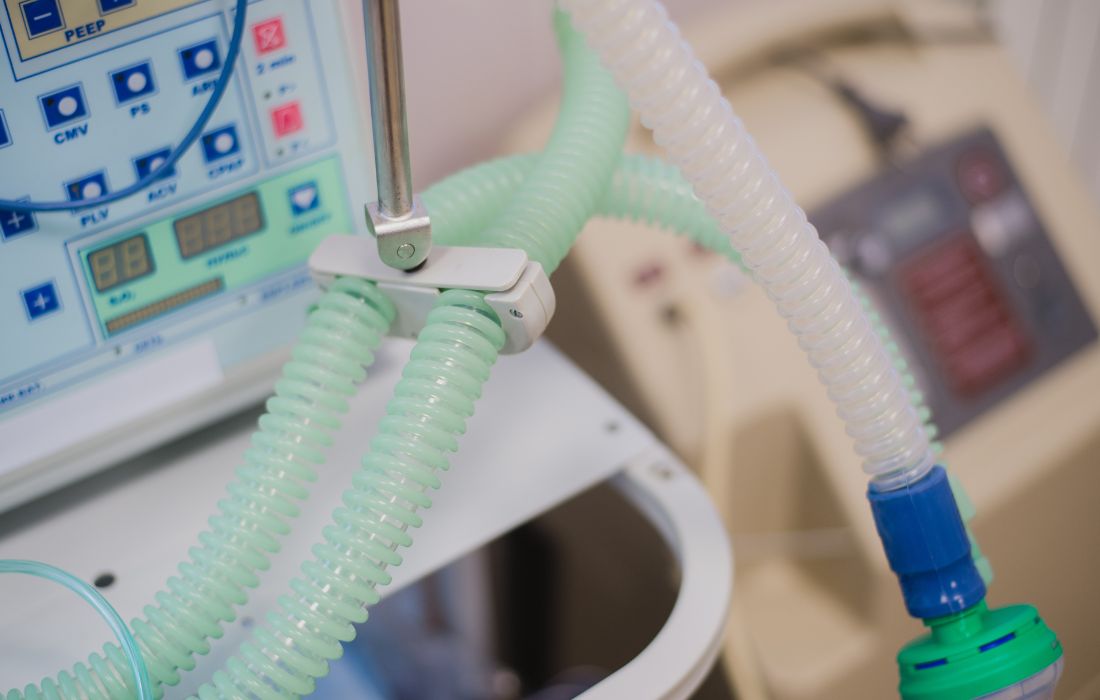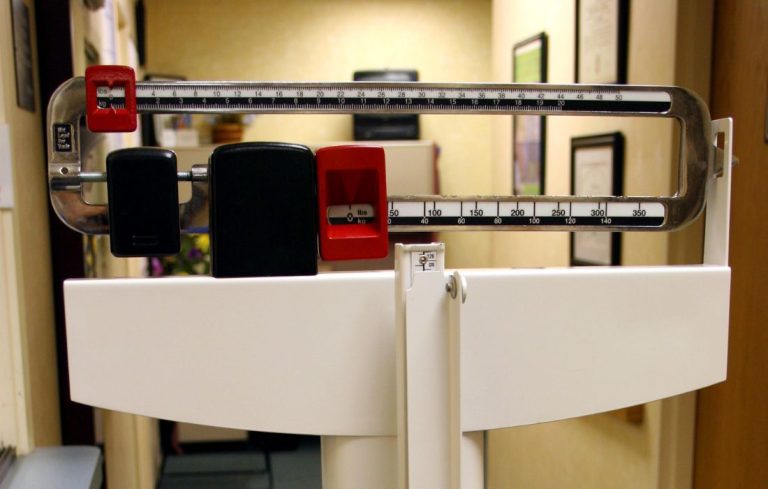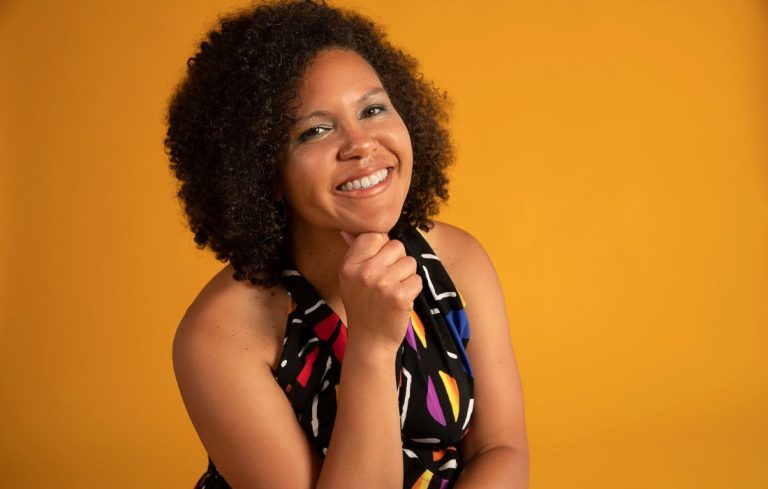Denied a Say: Why Advance Directives Matter—Even in Pregnancy
Adriana Smith, a 30-year-old pregnant nurse, is being kept on life support after a medical emergency left her brain dead. Due to restrictive state laws, her family has no say in what happens next.
While an advance directive can’t change Adriana’s heartbreaking situation, her story is a powerful reminder of why these documents matter.
This episode of the Plus Mommy Podcast explores what advance directives are, how they work, and why every adult, especially those who are pregnant or parenting, should have one in place.
These tools can’t stop every crisis, but they can make sure you’re not silenced when it matters most.
What is an Advance Directive?
An advance directive is a legal document that allows you to share your healthcare wishes in case you’re ever unable to speak for yourself.
It usually includes:
- A living will, which outlines the types of care you’d want (or not want), like life support or feeding tubes
- A medical power of attorney, naming someone you trust to make medical decisions for you
You can complete these documents without a lawyer, and they’re free to access online. Most states allow you to simply download a form, have it witnessed or notarized, and that’s it. You can also update your directive at any time if your wishes change.
A great place to start is CaringInfo.org, which offers free, state-specific advance directive forms.
Why having an Advance Directive Matters—Especially in Pregnancy
While serious complications during pregnancy are rare, emergencies can happen in an instant. Whether it’s a car accident, a sudden health crisis, or an unexpected turn during birth, having a plan in place for your medical care is an essential part of preparing for parenthood.
Pregnancy is a time filled with thoughtful planning—from decorating the nursery to choosing baby names and mapping out your birth preferences. But what about your medical wishes if something unexpected happens and you’re unable to speak for yourself?
That’s where an advance directive comes in. It’s a legal document that allows you to outline your preferences and designate the people you trust to make decisions on your behalf. It’s about making sure your voice is honored.
But here’s something many people don’t realize—your advance directive might not be honored if you’re pregnant, depending on where you live.
In nine states—Alabama, Indiana, Kansas, Michigan, Missouri, South Carolina, Texas, Utah, and Wisconsin—your advance directive can be automatically invalidated during pregnancy, no matter what it says.
That means even if you’ve made your wishes crystal clear, the law may require life-sustaining treatment to continue simply because you’re pregnant.
In 20 other states, your wishes may only be followed if a physician determines the fetus isn’t viable or wouldn’t survive even with treatment. Those states include: Alaska, Arkansas, Delaware, Florida, Georgia, Illinois, Iowa, Kentucky, Louisiana, Montana, Nebraska, Nevada, New Hampshire, North Dakota, Ohio, Oklahoma, Pennsylvania, Rhode Island, South Dakota, and Washington.
Yes, in nearly 30 states, there are regulations regarding advance directives during pregnancy.
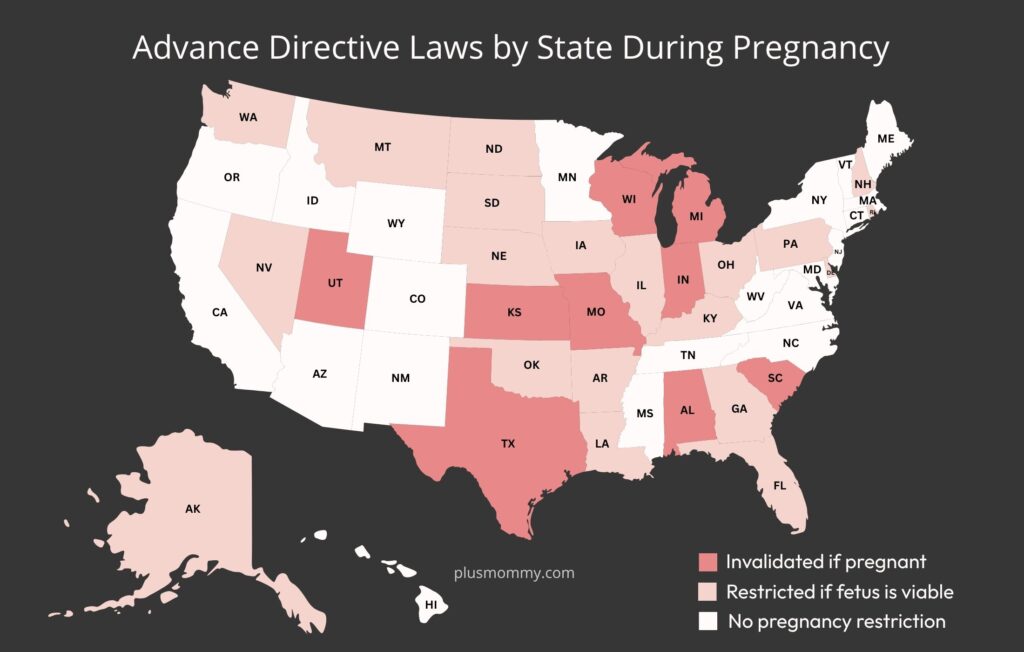
So while creating an advance directive is still a crucial step in advocating for your care, it’s equally important to understand how your state’s laws treat pregnancy-related exclusions.
Unless, heartbreakingly, you’re in a circumstance like Adriana’s—where even your carefully made decisions can be taken away, the people you love and trust should be the ones making choices for you.
Taking time to create an advance directive and researching your state’s laws can be an empowering act of protection for both you and your baby.
Learn more here.
A True Gift to Your Loved Ones
Advance directives aren’t just for you; they’re a gift to the people you love. They offer clarity and peace at a time when everything else feels overwhelming.
And they’re not just for older people. I’ve worked with families who wished they’d had these conversations sooner.
Medical emergencies don’t care how old you are. The younger you are, the more likely you haven’t written your wishes, but that doesn’t mean you shouldn’t.
Start Today
You don’t have to wait for a big life event to fill out an advance directive.
You can start today. Right now.
Download your form, have the conversation, choose your person (or people), and write down what matters most. It doesn’t have to be perfect. It just has to be done.
Download your form, talk with your loved ones, choose the person (or people) you trust, and put your wishes in writing.
This is healthcare advocacy—and your voice deserves to be heard.
Recording & Show Notes: Plus Mommy Podcast Episode 230
Transcript happily provided upon request.
- CaringInfo.org – Advance Directives by State
- Pregnancy Exclusions for Advance Directives
- Adriana Smith’s GoFundMe
a community.
This episode is brought to you by the Size-Friendly Birth Course—an online training for birth and postpartum professionals ready to provide size-inclusive care for people in larger bodies.
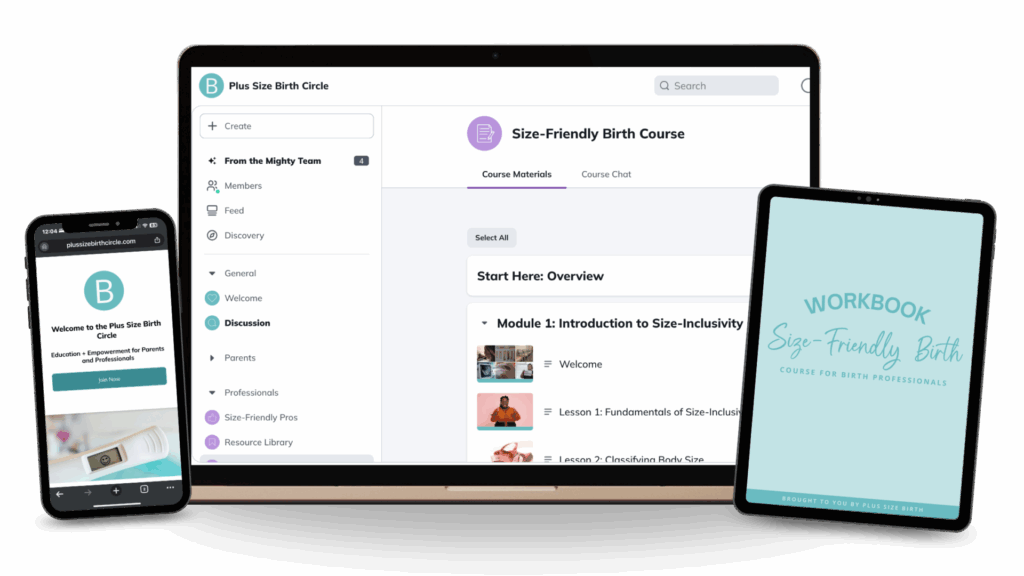
You’ll get:
- 🎥 Over 6 hours of video lessons
- 📘 A 115-page editable PDF workbook with guided activities
- 🕒 6 contact hours for professional development
- 📜 A certificate of completion
- 🌐 Bonus: Access to the Plus Size Birth Circle—our exclusive online platform and mobile app for on-the-go learning and community support
Use code PLUSMOMMY for 20% off at plussizebirth.com!

